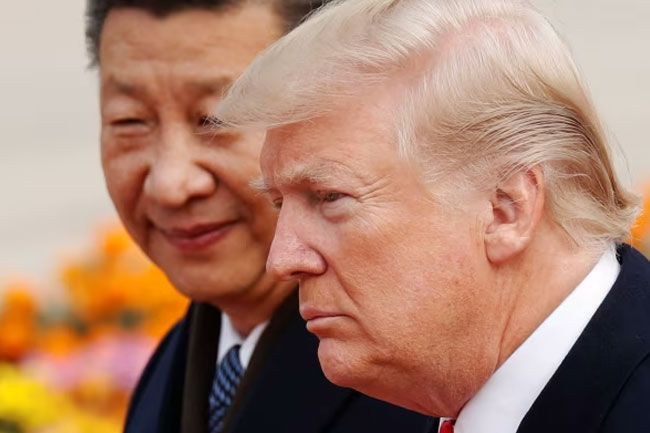Congress Grapples with Trump's Controversial Budget Plan
Dive deep into the contentious discussions and legislative maneuvers in Congress surrounding President Trump's ambitious budget plan, which seeks unprecedented tax cuts and spending reductions.
Published April 11, 2025 - 00:04am

Image recovered from japantoday.com
In a dramatic turn of events in Washington, D.C., House Republicans have narrowly approved a budget framework that has set the stage for sweeping tax cuts and economic reform under President Donald Trump. The decision was struck after intense negotiations spearheaded by House Speaker Mike Johnson, marking a pivotal moment for the Republican party and its fiscal agenda.
The vote took place against a backdrop of economic instability, with financial markets responding sensitively to the administration's ongoing trade wars. Ultimately, the budget plan was advanced by a single vote margin, 216-214, in a demonstration of the deep divisions within the GOP itself. Speaker Johnson, alongside Senate Majority Leader John Thune, emphasized the commitment to at least $1.5 trillion in federal cuts as a counterbalance to the proposed tax breaks.
The resolution outlines significant reductions in government spending, including the most extensive cuts to the Medicaid health program and food assistance seen in American history. These proposals aim to accompany what Trump and his administration call the 'biggest tax cuts in USA history,' casting a long shadow over the nation's fiscal policies.
Democrats, led by House Minority Leader Hakeem Jeffries, have rallied to oppose the measure, labeling it as a 'toxic scheme' that prioritizes the wealthy at the expense of critical public services. Their opposition stands in stark contrast to the slim Republican majority that navigated the legislative hurdles to push the plan forward.
This budget initiative has reignited familiar debates within Congress about the role of government and the strategic deployment of fiscal resources. Conservative factions within the GOP, particularly the Freedom Caucus, initially resisted moving forward without assurances of deeper spending cuts. This internal discord led to a prolonged night of negotiations and meetings within the Capitol, where resolution seemed elusive.
However, Speaker Johnson's marathon effort, including consultation with Trump, realigned Republican forces just in time. The final negotiations hinged on assurances from key figures like Trump and Thune to enforce strict fiscal discipline moving forward, despite the objections of two GOP representatives who joined Democrats in voting against the plan.
While the official passage of the budget framework in the House marks a victory for Trump's domestic agenda, more hurdles lie ahead as lawmakers must translate the framework into actionable bill texts. Contentious issues about the specifics of the proposed cuts and the legal mechanics of 'budget reconciliation' processes underpin the forthcoming debates.
The ensuing policy landscape is intricately linked to the preservation and extension of the tax reforms inaugurated during Trump's first presidential term. With the nation's debt ceiling once again broached, the discussions within both chambers reflect a broader ideological discourse concerning the size and scope of government intervention in the economy.
In the Senate, where division likewise runs deep, GOP senators expressed skepticism about substantial cuts proposed by the House, particularly those impacting Medicaid. The reconciliation of these budgetary priorities remains a complex puzzle, demanding bipartisan cooperation that seems increasingly elusive in today's polarized political milieu.
As political actors on both sides gear up for protracted fiscal debates, the successful passage of this budget framework officially unlocks a legislative pathway for Trump's second-term ambitions, reflecting broader socio-political currents as America continues its cautious march towards fiscal retrenchment and reform.







